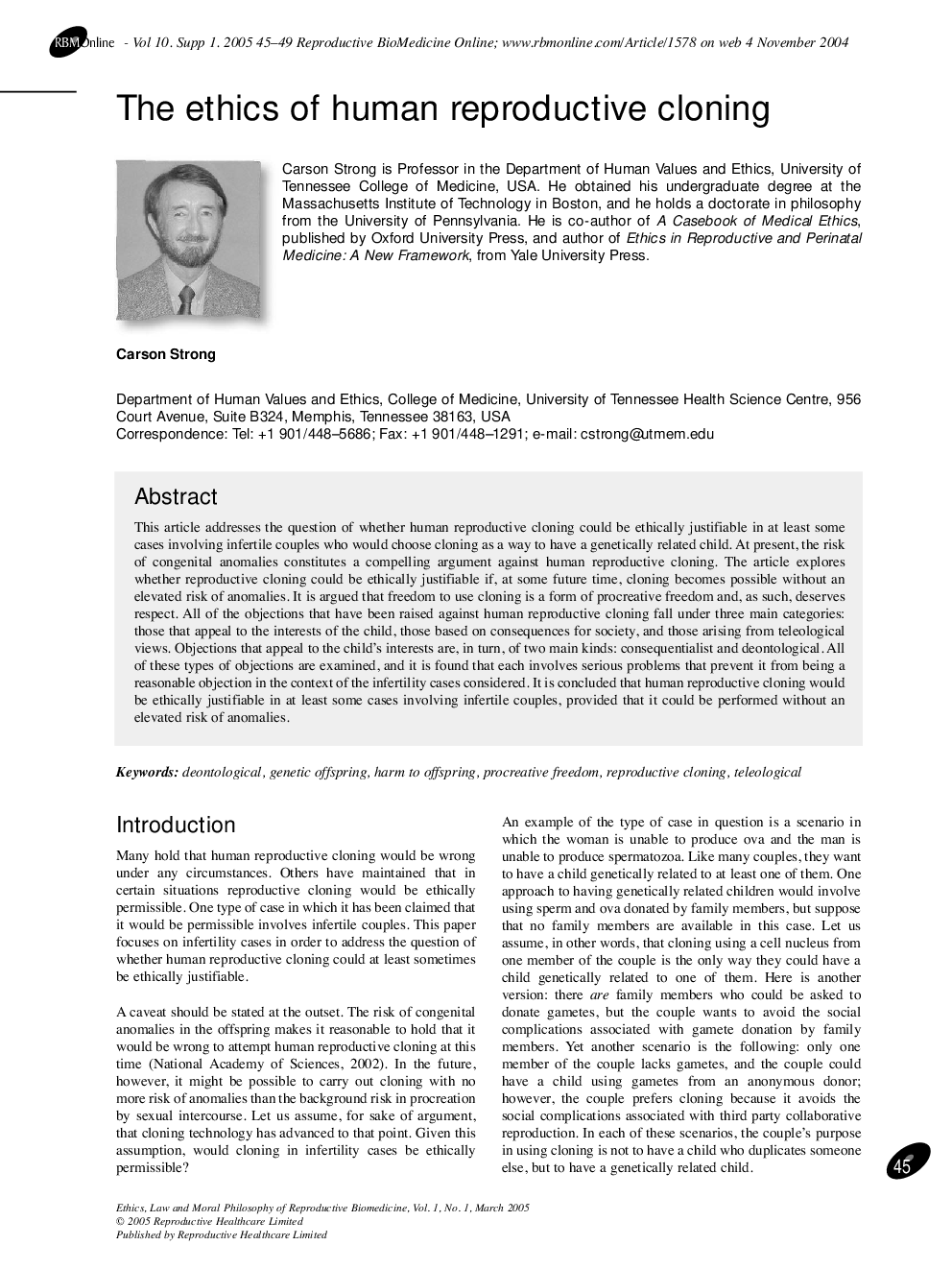| Article ID | Journal | Published Year | Pages | File Type |
|---|---|---|---|---|
| 9335239 | Reproductive BioMedicine Online | 2005 | 5 Pages |
Abstract
This article addresses the question of whether human reproductive cloning could be ethically justifiable in at least some cases involving infertile couples who would choose cloning as a way to have a genetically related child. At present, the risk of congenital anomalies constitutes a compelling argument against human reproductive cloning. The article explores whether reproductive cloning could be ethically justifiable if, at some future time, cloning becomes possible without an elevated risk of anomalies. It is argued that freedom to use cloning is a form of procreative freedom and, as such, deserves respect. All of the objections that have been raised against human reproductive cloning fall under three main categories: those that appeal to the interests of the child, those based on consequences for society, and those arising from teleological views. Objections that appeal to the child's interests are, in turn, of two main kinds: consequentialist and deontological. All of these types of objections are examined, and it is found that each involves serious problems that prevent it from being a reasonable objection in the context of the infertility cases considered. It is concluded that human reproductive cloning would be ethically justifiable in at least some cases involving infertile couples, provided that it could be performed without an elevated risk of anomalies.
Keywords
Related Topics
Health Sciences
Medicine and Dentistry
Obstetrics, Gynecology and Women's Health
Authors
Carson Strong,
